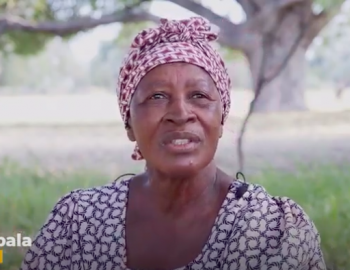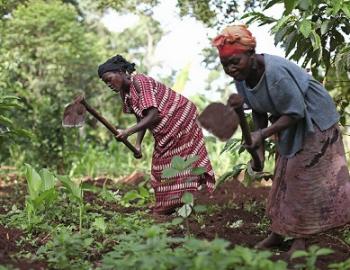REPORT: Scaling up pathways for climate-smart agriculture technologies and practices in Nepal
REPORT: Scaling up pathways for climate-smart agriculture technologies and practices in Nepal
The document presents the policy provisions, opportunities and challenges for scaling up climate-smart agriculture technologies and practices in Nepal. This was achieved through applied qualitative method, especially a combination of desk study, consultation and field observation. Desk study was carried out by collecting the relevant documents and reviewing them. While reviewing the documents special attention was given to the policies pertinent to particular agriculture practices. For example, desk review of annual plans and budgets of the government for champion climate-smart agriculture. Consultation with experts from government officers, especially District Agriculture Development Office (DADO) Kaski, was conducted with an objective to identify strengths and barriers in existing policy provisions and to understand the extent to which sectoral and other policies have integrated climate-smart agriculture. Field observation was conducted in order to collect primary information in Hemja and Majhthana of Kaski and Chormara, Agyouli and Rajhar in Nawalparasi. The main objective of field observation is to validate and fine tune study findings as well as listen farmers experience on climate-smart agriculture.
Key findings:
- Despite greater recognition of climate-smart technologies in policies and strategies, climate-smart agriculture has not received adequate attention in planning and implementation.
- Climate-smart techniques are not well documented, disseminated and widely shared, and are not adequately incorporated into extension guidelines and manuals.
- Climate-smart agriculture is not always backed with scientific evidence. More research is warranted for the various agro-ecological zones, soil types, rainfall patterns and farming systems.
- The coordination among governmental departments, institutions and organizations involved in climate-smart agriculture can be improved for avoiding duplication and conflict with one another during implementation.
- Many projects and programmes are promoting climate-smart agriculture. However, these projects and programmes are being implemented in project-based approaches without adequate attention to sustainability of these practices.
- Weak capacity on climate change adaptation and mitigation at all levels including public sector, civil society organization and the private sector remain a key challenge.
- Due to lack of service provider, materials and inputs required to adopt climate-smart agriculture are not always available at local market.
- Economically poor smallholder farmers are not able to adopt some of expensive climate-smart technologies such as solar-pump based irrigation and machine based zero-tillage.
Picture: Francois de Halleux



